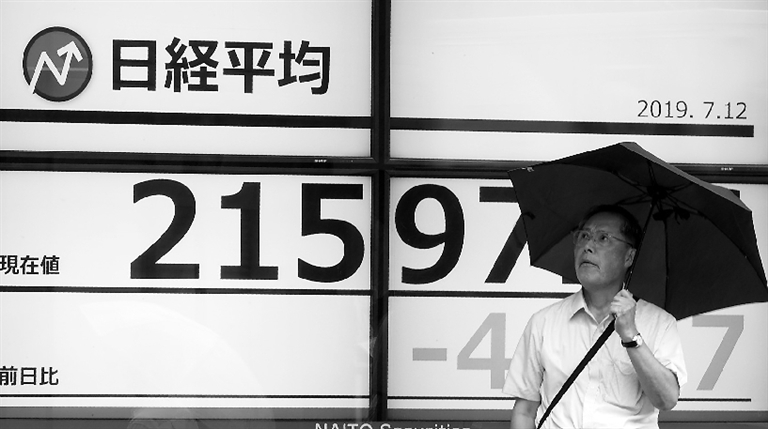
THE gap in valuations of Japanese shares is at its widest since the dot-com crisis two decades ago and will likely stay that way until global trade tensions ease, analysts say. The Nikkei share average has been stuck in a narrow trading range for months but, behind the lull in activity, a major polarization is taking place, analysts say. “On average, Japanese share valuations are fairly cheap, but when you are stock-picking, many of the shares you would like are already quite expensive,” said Hiroyuki Ueno, senior strategist at Sumitomo Mitsui Trust Asset Management. “On the other hand, you have cheap shares but few investors will buy because they keep getting cheaper,” he added. A handful of stocks viewed as immune to the trade disputes are very expensive. As their share prices have soared, so has the price book-value ratio (PBR), a key metric used by investors. A higher ratio indicates the stock is potentially overvalued. These stocks include cosmetics firm Shiseido with a PBR of 7.3, and drugmaker Chugai Pharmaceuticals at 5.2. Recruit Holdings, which matches companies with potential employees, is among the services firms doing well in a sluggish economy. It has a PBR of 6.1. Meanwhile, big banks and automakers, the traditional face of corporate Japan, have seen their PBRs fall, in some cases well below 1.0. That indicates the market believes the stock is not worth the total net assets of the company. Honda Motor Co. and Nissan Motor Co. have seen their ratios fall to about 0.6, while Toyota Motor Corp. is trading at 1.0, near its record low. The autos sector is trading at a PBR of 0.8 as investors worry about the impact of trade wars and game-changing technologies such as electric cars and automated driving. The ratios for banks are even lower due to negative interest rates and fintech firms challenging traditional banking. The top three banking groups — Mitsubishi UFJ, Sumitomo Mitsui and Mizuho — are buried between 0.4 and 0.5, with banks as a whole trading at a record low PBR of about 0.4. While stock markets always have winners and losers, the gap between them has reached historic levels, said Masahiro Suzuki, senior quants analyst at Daiwa Securities. With few attractive investment opportunities, investors have stayed away from the Tokyo market this year. Foreign and domestic investors have been net sellers of stocks so far this year, according to stock exchange data. The few buyers are companies buying back their shares and the Bank of Japan, which plans to buy about 6 trillion yen of shares a year as part of a stimulus program. (SD-Agencies) | 
